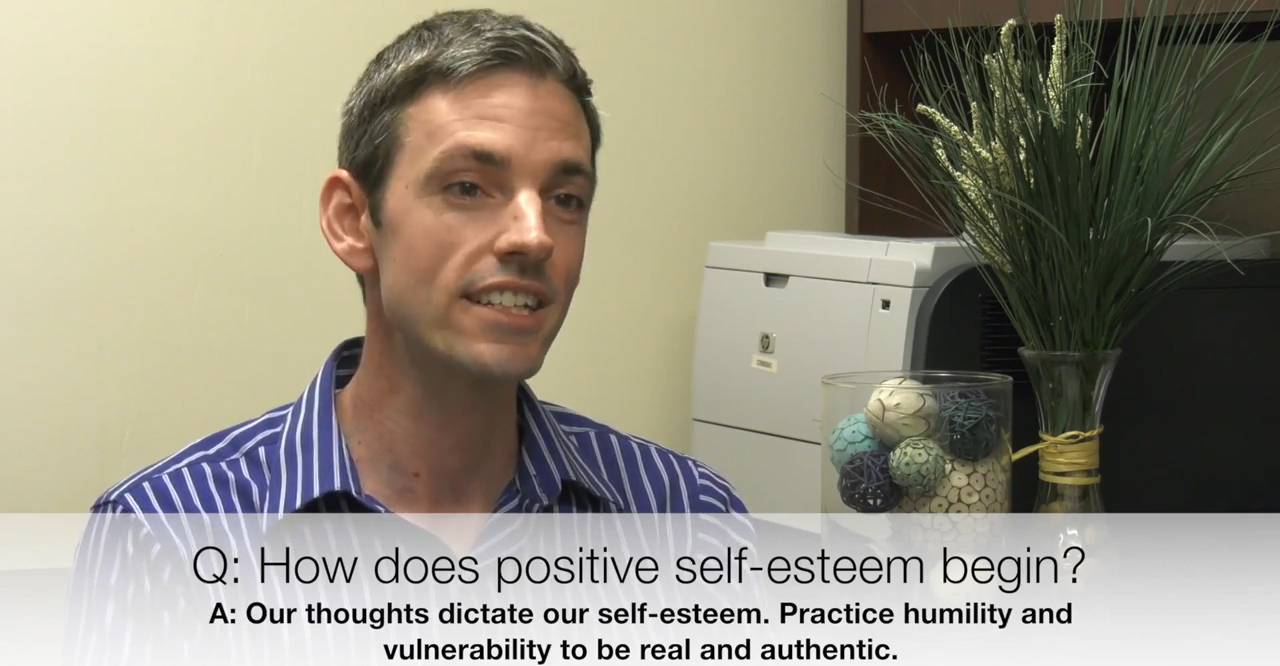Be a Friend to Yourself: Developing Positive Self-Esteem
By Kristy Warren
Our emotional and mental health is as important to a happy, healthy life as our physical health. May marks Mental Health Month, a great opportunity to check in with ourselves. Unfortunately, we are often our own worst critic, adamant that we’re not enough or should be doing better.
We’re often far kinder and forgiving to others than we are to ourselves. When it comes to seeing and supporting ourselves, many of us feel we’re not enough: not successful enough, not loved enough, not accomplished enough. These feelings often stem from low self-esteem.
So how do we confront our "shoulds" to develop a healthy sense of self-esteem? Tyler Benelli, a licensed clinical social worker at Laurel Behavioral Health, discusses how we can build a healthy sense of self-esteem.
What is self-esteem?
Self-esteem refers to how worthwhile or valuable we feel as a person. It encompasses our self-respect and our confidence in ourselves. Personal and professional successes or setbacks can cause fluctuations in our feelings of self-worth.
How do we build positive self-esteem?
How we think and feel about ourselves determines our self-esteem. An important first step is to be open and honest with ourselves. We often use “should” to be down on ourselves or beat ourselves up for a decision, feeling, or lack of satisfaction.
This can lead to a sense of worthlessness or guilt. Confront your “shoulds” honestly and humbly instead. By being vulnerable enough to confront what we really hope for, fear, or stress out about, we can take positive steps to address them.
Vulnerability isn’t a weakness:
We’ve all heard the saying “you are your own worst critic.” That little voice in our head can haunt us: “You’re going to mess up your presentation!” Learning how to face up to the inner voice’s fears or doubts by naming and owning them allows us to then positively counter or “talk back.” By being vulnerable enough to acknowledge those emotions, we confront our self-criticisms: “My presentation may not be perfect, but that’s OK. I worked hard on it, and I’m going to do my best.”
Confront your “shoulds” honestly:
We all make mistakes. We all have situations we wish had gone differently. “Shoulds” become rules that we set for ourselves about we think our lives should be going. If you’re thinking: “I should have been promoted by now,” “I should be happier in my marriage,” “I should always be the best,” or “I should have said yes to that,” allow yourself to be honest about why you feel that way and evaluate the feelings tied up in those thoughts.
Do you feel guilty, angry, sad, confused, or cheated when you don’t live up to your shoulds? What are your feelings telling you about your values?
Reality check:
When confronting your shoulds, ask yourself: would you be this hard on a friend or family member? Remember to show yourself the same grace, forgiveness, support, and humility you would show your best friend if they were struggling with something.
A helping hand:
Sometimes this kind of honest evaluation can be uncomfortable, difficult, or too daunting to do on your own. Finding someone you trust who can listen and serve as a sounding board can be helpful. If you’re really struggling with self-esteem, depression, anxiety, or stress, don’t wait it out—seek help. A mental health professional can help you find the best way to work through your situation in a comfortable, confidential setting.
Laurel Behavioral Health offers individual, family, marital, and group therapy sessions, including play therapy for children, at each health center and in its outpatient office in Wellsboro. Counseling is available for a wide range of mental and emotional health concerns, including depression, anxiety, panic, eating disorders, parent-child difficulties, and relationship issues.
Looking for a helping hand? Call our Laurel Behavioral Health office today at 570-723-0620.
